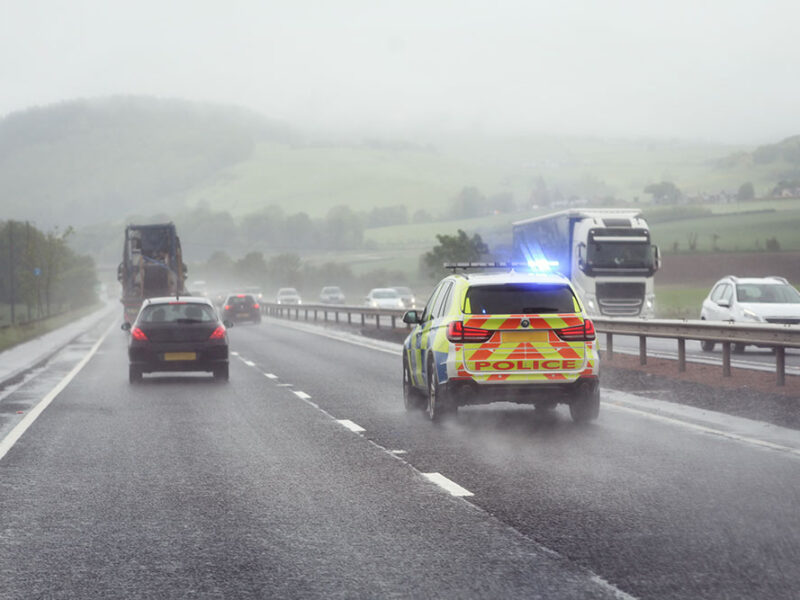The value of independent compliance systems audits for road transport operators has long been established, and that value has been recognised for many years by Traffic Commissioners. Many public inquiry cases culminate in operators offering the Traffic Commissioners an undertaking that the operator will obtain an independent compliance audit and supply a copy of the audit report to the OTC by a certain date.
For obvious reasons, the government "lockdown" arising out of the Covid-19 pandemic has made the completion of audits in the traditional way - i.e. with the auditor attending at the operator's operating centre or office in order to go through original paper records - all but impossible.
However, as set out in the OTC's Emergency Statutory Guidance Document (click here) together with its Cover-19 Advice for Operators document (for the link to the update on 6th April 2020 - click here), regulation of the industry continues, and interim measures have been put in place to ensure that this regulation can continue as efficiently and fairly as possible during these unprecedented times.
Whilst most (if not all) face to face Public Inquiry hearings have been postponed, the OTC is now finding other ways to resolve 'live' cases via hearings conducted by video link, whilst in less serious cases, Public Inquiries may be dispensed with on the basis that operators agree to undertakings, which may include an audit requirement.
Recognising the value of independent audit evidence whilst at the same time seeking not to put operators in an impossible position in the light of the current lockdown guidelines, the OTC have confirmed that on an interim basis, audits carried out remotely will be accepted and has published detailed guidance setting out strict requirements for any audit to be carried out this way. A remote audit involves the operator providing information and documentation electronically to an auditor for review, so that the auditor can then produce a report based upon the information supplied. The process itself is not new; the DVSA has been carrying out 'desk based assessments' on a similar basis for some time.
The guidance - which can be found here - is aimed at both operators and auditors. It sets out exactly what any remote auditor will be expected to consider, including the nature and number of documents with which an auditor should be supplied electronically in order to produce an audit report, and how documents and basic operator information should be provided (operators are told, for example, that they must not share their VOL login credentials with auditors). For the auditor, the document provides a clear template structure for the audit report.
Anyone offering an audit service needs to be familiar with the guidance document - but perhaps more importantly, any operator that has been required to obtain an audit (or any operator considering doing so voluntarily) should do likewise. Whilst the auditor should tell the operator exactly what he or she needs to be provided with in order to carry out the audit, operators should not rely solely on auditors to tell then what to do, nor should they rely on the auditor to ensure the final report covers everything it needs to. The first question any operator should ask a potential auditor before engaging their services is whether they are familiar with this guidance. A report which does not comply with these requirements may not be accepted by a Traffic Commissioner, which could leave the operator in breach of an O-licence undertaking.
Of course most importantly, operators should seek to achieve the maximum value from an audit, by using the process to achieve a compliant and safe operation.
If you have an audit requirement and need advice on ensuring that your systems and procedures are everything they should be, or if you have any other O-licensing queries, please do not hesitate to get in touch with us by calling 01279 818280 or click here to send an email.
Published 27th April 2020

More News and Insight

Abnormal Loads – Calls for Changes to Law for Abnormal Loads Needing Police Escorts
Recently in the trade press there have been articles reporting calls from the UK’s Heavy Transport Association (HTA) for the law to be changed regarding police escorting of abnormal loads….

DVLA Confirms New Rules for Professional Drivers Living with Diabetes
From Friday 7th November 2025 the rules were changed to allow diabetic drivers of PSV’s and HGV’s to monitor their glucose levels using Continuous Glucose Monitoring Systems….

Carrying Your Own: Horses to Widgets? Do you Need an O Licence?
The DVSA recently released a press release about the rules for transporting horses in horse boxes and trailers following an update on the guidance about using a tachograph in the vehicle being used to transport the animals…

The Senior Traffic Commissioner’s Statutory Guidance
The value of The Statutory Guidance Documents and the importance to operators, nominated transport managers and other professionals involved in the operation and driving of large commercial vehicles cannot be overstated…

Walkaround Checks – Where Road Safety Starts
Every day, often before the sun is above the horizon, hundreds of thousands of commercial vehicles are started up by their drivers and then they head out on to the UK’s road network to transport goods or passengers from one point to another, often with demanding time constraints thrown into the mix…

Traffic Commissioner’s Annual Report 2024/25: “Don’t Look Back in Anger”
Time has flown by and once again we find that the schools are back after the long summer break and the Office of the Traffic Commissioner has issued its annual report to the Secretary of State, providing a review of the year…

An Apple a Day to Keep the DVLA Away – A review of the DVLA’s Rules on Health Checks for Professional Drivers
There has been some discussion in the industry trade press recently that has highlighted proposed changes to how the disease of diabetes is monitored in professional drivers by the DVLA. One article in RouteOne Magazine stated that…

Light Goods – Heavyweight Industry: The DVSA’s New LGV Strategy
While relatively small in overall physical size light goods vehicles (LGVs) are now a large part of the UK road transport industry. There are currently estimated to be over 5.1 million light goods vehicles on UK roads today…

Employment Law Update – A tale like Scylla & Charybdis
Operators currently face their own real time nightmare in the form of a modern day version of the Greek mythological tale of Scylla and Charybdis (where sailors faced a narrow strait through which they had to pass which had a monster on one side and a whirlpool on the other!)…

Labour Government – Employment Rights Bill – What Will It Mean for Transport Businesses?
In October 2024 the Deputy Prime Minister, Angela Rayner set out her intention to reform the employment rights held by employees in the UK. In a press release issued at the time she is quoted a saying…

Revisiting the DVSA’s Guide to Maintaining Roadworthiness
In April 2025 the Driver & Vehicle Standards Agency (DVSA) issued the latest edition of its Guide to Maintaining Roadworthiness.

The Wheels on the Bus go Round & Round….but how do they Stop?
At the tail end of 2024 a Public Inquiry was held in front of Traffic Commissioner Kevin Rooney where the subject of brake maintenance practices was called into question…
